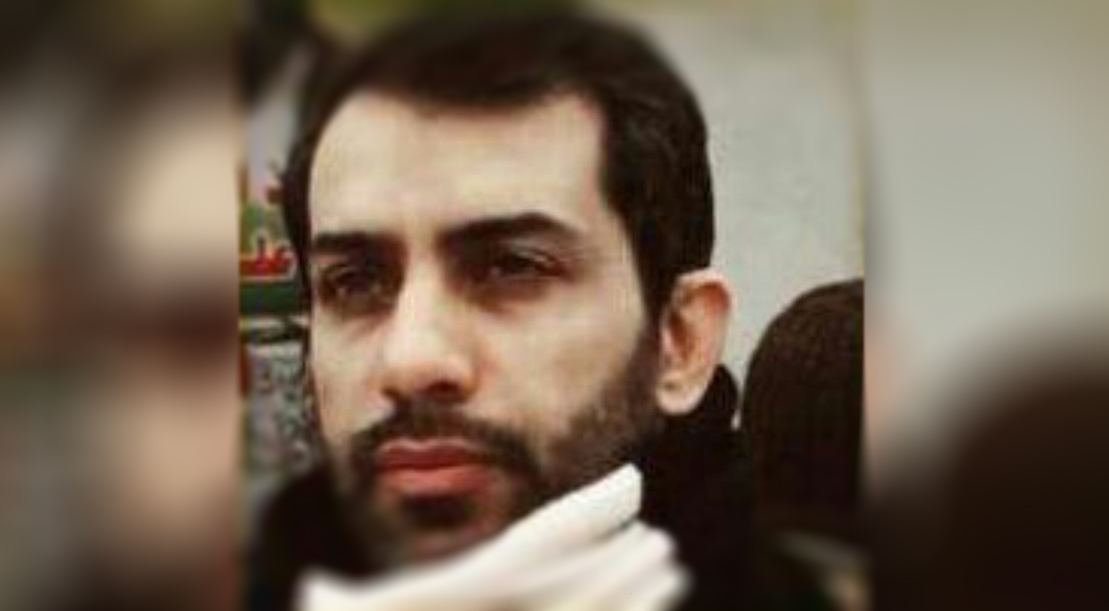Mahdi Ali Hasan Mahdi Khalaf was a 38 year old Bahraini taxi driver when he was arrested in November 2015 by Bahraini officers in civilian clothing. The reason behind the arrest was attributed to his alleged involvement in a terrorist group named “Zulfiqar Brigades”, to which he was sentenced to life imprisonment and denaturalization.
Mahdi is currently being arbitrarily detained in Jau Prison. On 9 June, 2020, the United Nations Working Group on Arbitrary Detention (WGAD) published an opinion for the immediate release of Mahdi and 19 other Bahraini citizens convicted on 15 May 2018 in the mass trial involving 138 defendants for the same charge of their alleged involvement in Zulfiqar Brigades.
On 3 November, 2015, officers in civilian clothing raided Mahdi’s house at 2 AM without prior notice. At the same time, riot police were deployed around the house. There was no warrant presented for the entry and search of the house.
Following the arrest, Mahdi disappeared for one week, after which he called his parents and told them he was at the Criminal Investigation Directorate (CID), where he remained for 26 days. He was then transferred from the CID to the Dry Dock Detention Center.
During the period of investigation, which lasted approximately 33 days, Mahdi was subjected to severe forms of physical and psychological torture by CID officers in an attempt to coerce a false confession. He was strictly forbidden from meeting anyone, even his lawyer, and no adequate facilities or defence were available to prepare for his trial. Despite his deteriorating health, he was consistently beaten and tortured.
Mahdi has been suffering from irritable bowel syndrome for over 10 years. He previously underwent surgery (colonoscopy) and has a permanent prescription for the disease. Additionally, if he consumes foods unsuitable for his health, he goes through terrible pain. Due to the dire prison conditions, including lack of water, inadequate food, and constant pressure, Mahdi’s health deteriorated quickly, and despite his urgent need for medical attention, he was denied any visitation to a doctor. The family submitted a complaint at the Ministry of Interior Ombudsman in order to provide medication.
On 15 May 2018, Bahraini’s Fourth High Criminal Court found Mahdi guilty on terror-related charges associated with the “Zulfiqar case”, including (1) joining a terrorist cell, (2) training for the use of firearms and explosive devices for terrorist purposes, (3) aided and abetted in the training of the use of firearms and explosive devices for terrorist purposes, (4) illegal possession of firearms, (5) illegal possession of explosives, and (6) communication with Iran and the Iranian Revolutionary Guard Corps for terrorist purposes. Mahdi was sentenced to life imprisonment and stripped from his citizenship. Since the victims were absent in their court hearings, Mahdi was not able to present evidence nor challenge evidence presented against him. He was also denied access to his lawyer. His nationality has been restored on 21 April 2019 after the king’s decree to keep the nationalities of 551 detainees whose citizenship were revoked previously.
Mahdi, alongside other victims, was subjected to enforced disappearances, as he was (a) deprived of liberty against his will, (b) by government officials who (c) failed to disclose their fate and whereabouts. Further, all of the individuals were subjected to unfair trials, as they were arrested without warrants, prevented from access to legal counsel, convicted on the basis of confessions obtained through torture, and sentenced in absentia. Hence, Bahrain has failed to observe norms related to a fair trial, a violation which falls under a Category III deprivation of liberty. Their detention is thus arbitrary, in violation of Article 9 of the ICCPR.
The use of torture during Mahdi’s interrogation violates both Bahraini law and Bahrain’s obligations under international law, namely the Convention Against Torture and Other Cruel, Inhuman or Degrading Treatment or Punishment (CAT). Mahdi’s arbitrary detention and unfair trial also violates the International Covenant on Civil and Political Rights (ICCPR), to which Bahrain acceded in 2006.
Americans for Democracy and Human Rights in Bahrain (ADHRB) calls upon the Bahraini authorities to abide by their international human rights obligations in protecting and promoting human rights. ADHRB urges the Bahraini government to investigate allegations of torture and other human rights violations, particularly with regards to Mahdi’s case, in order to hold perpetrators accountable. We ask authorities to disclose information about Mahdi’s case and his charges to his family, and pursue a fair trial.





